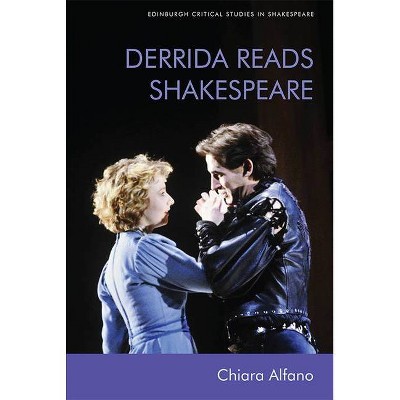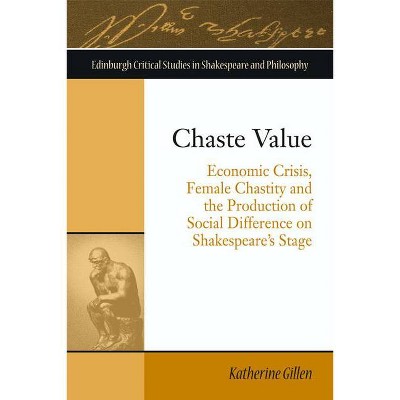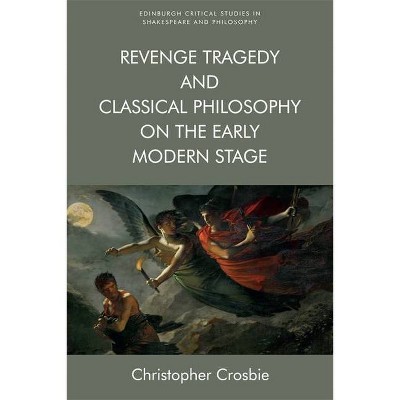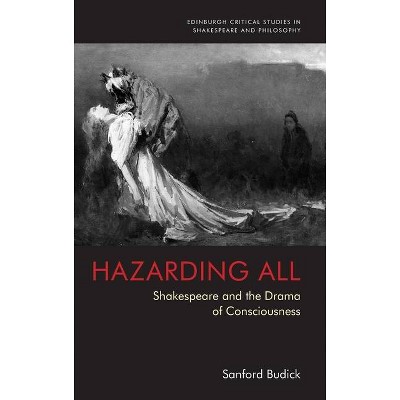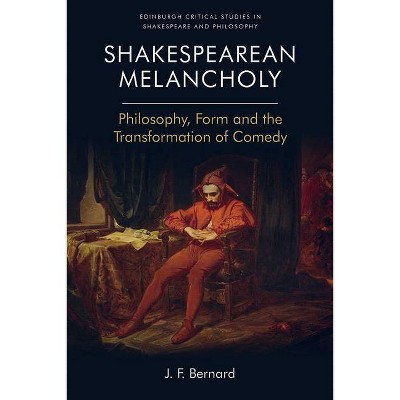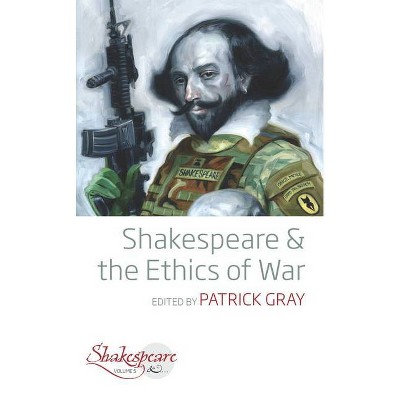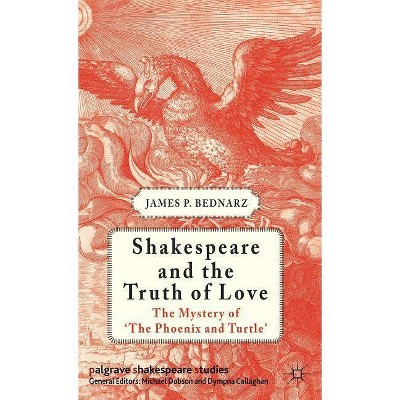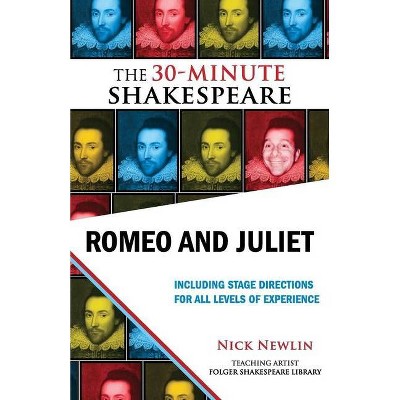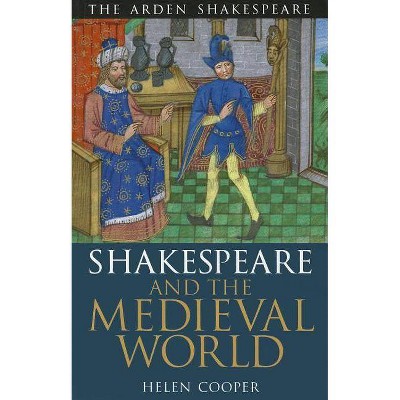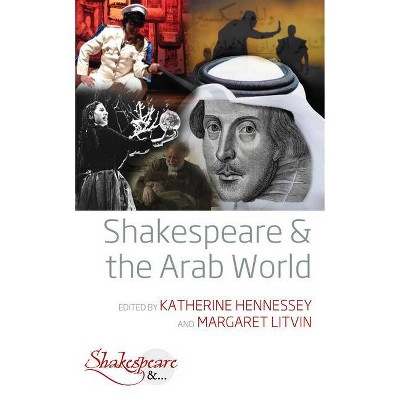Shakespeare and the Fall of the Roman Republic - (Edinburgh Critical Studies in Shakespeare and Philosophy) by Patrick Gray (Paperback)
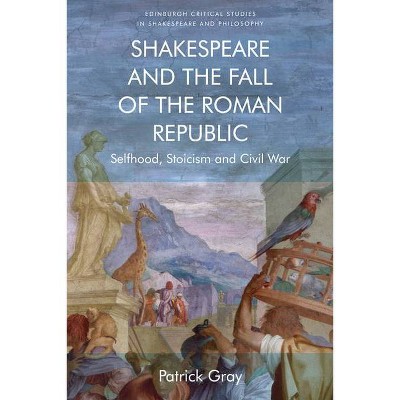
Similar Products
Products of same category from the store
AllProduct info
<p/><br></br><p><b> About the Book </b></p></br></br><p><em>Shakespeare and the Fall of the Roman Republic</em> introduces Shakespeare as a historian of ancient Rome alongside figures such as Sallust, Cicero, St Augustine, Machiavelli, Gibbon, Hegel and Nietzsche. </p><p/><br></br><p><b> Book Synopsis </b></p></br></br><p><strong>Explores Shakespeare's representation of the failure of democracy in ancient Rome<br></strong><em> <br>Shakespeare and the Fall of the Roman Republic</em> introduces Shakespeare as a historian of ancient Rome alongside figures such as Sallust, Cicero, St Augustine, Machiavelli, Gibbon, Hegel and Nietzsche. In Julius Caesar and Antony and Cleopatra, Shakespeare shows Rome's transition from Republic to Empire. Why did Rome degenerate into an autocracy? Alternating between ruthless competition, Stoicism, Epicureanism and self-indulgent fantasies, Rome as Shakespeare sees it is inevitably bound for civil war. <em>Shakespeare and the Fall of the Roman Republic</em> considers Shakespeare's place in the history of concepts of selfhood and reflects on his sympathy for Christianity, in light of his reception of medieval Biblical drama, as well as his allusions to the New Testament. Shakespeare's critique of Romanitas anticipates concerns about secularisation, individualism and liberalism shared by philosophers such as Hannah Arendt, Alasdair MacIntyre, Charles Taylor, Michael Sandel and Patrick Deneen.</p> <p><strong>Key Features: </strong></p> <ul> <li>Explains Shakespeare's interpretation of the underlying causes of the Roman Republican civil wars</li> <li>Shows how Shakespeare uses Roman history as a testing-ground to arbitrate between competing claims about human nature</li> <li>Articulates Shakespeare's distinctive, compromise position on selfhood</li> <li>Situates Shakespeare within the intellectual history of individualism, Christianity, Romanticism, secularization, and political liberalism</li></ul><p/><br></br><p><b> From the Back Cover </b></p></br></br>Explores Shakespeare's representation of the failure of democracy in ancient Rome Shakespeare and the Fall of the Roman Republic introduces Shakespeare as a historian of ancient Rome alongside figures such as Sallust, Cicero, St Augustine, Machiavelli, Gibbon, Hegel and Nietzsche. In Julius Caesar and Antony and Cleopatra, Shakespeare shows Rome's transition from Republic to Empire. Why did Rome degenerate into an autocracy? Alternating between ruthless competition, Stoicism, Epicureanism and self-indulgent fantasies, Rome as Shakespeare sees it is inevitably bound for civil war. Shakespeare and the Fall of the Roman Republic considers Shakespeare's place in the history of concepts of selfhood and reflects on his sympathy for Christianity, in light of his reception of medieval Biblical drama, as well as his allusions to the New Testament. Shakespeare's critique of Romanitas anticipates concerns about secularisation, individualism and liberalism shared by philosophers such as Hannah Arendt, Alasdair MacIntyre, Charles Taylor, Michael Sandel and Patrick Deneen. Patrick Gray is Assistant Professor of English Studies at Durham University.<p/><br></br><p><b> About the Author </b></p></br></br><p>Patrick Gray is Associate Professor of English Studies and Director of Liberal Arts at Durham University. He is the author of <i>Shakespeare and the Fall of the Roman Republic: Selfhood, Stoicism, and Civil War </i>(2019), editor of <i>Shakespeare and the Ethics of War</i> (2019), and co-editor of <i>Shakespeare and Renaissance Ethics</i> (2014). His essays have appeared in <i>Shakespeare Survey</i>, <i>Shakespeare Jahrbuch</i>, <i>Skenè</i>, <i>JMEMS</i>, <i>Comparative Drama</i>, and <i>Textual Practice</i>.<p>
Price History
Price Archive shows prices from various stores, lets you see history and find the cheapest. There is no actual sale on the website. For all support, inquiry and suggestion messages communication@pricearchive.us
